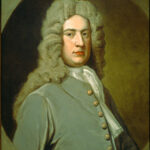- Joined
- Jan 5, 2022
- Messages
- 1,726
- Reaction score
- 407
- Gender
- Undisclosed
- Political Leaning
- Other

THE LEE MEN - Stratford Hall
www.stratfordhall.org
Ohio Company - Ohio History Central

What do you know about Robert E. Lee’s religious faith?
Gregory Elder writes about less well-known aspects of the still-controversial Confederate general’s life
 www.redlandsdailyfacts.com
www.redlandsdailyfacts.com
Entry | Timelines | US Religion
Details On People, Events or Movements for a US Religion Timeline
For those who don't know, the Lee family (as in the family of the Confederate general Robert E. Lee), has a notorious legacy which goes back to the French and Indian War from its ancestors founding the Ohio Company of Virginia which sparked conflict along the midwest frontier. Not only did they settle in lands long claimed by the French, but their abuse of native populations gave the French a justification to declare war to defend those abused. A lot of people will reduce this down to simple colonial imperialism, profiteering, and racial prejudice, but it's not that simple. The reality was the Lee Family has always been a low church Episcopalian family. It explicitly condemned the sacraments of Anglo-Catholic tradition as it came to be known under the Oxford Movement which again has implications when considering the Catholicism of the French.
The problem Jefferson had is he overreacted to this problem when pursuing the disestablishment of the Church of England in Virginia. Instead of filtering between the low and high church to understand where oppression really came from, he treated religion in general as a problem. He couldn't be bothered addressing the spirit of faith, but rather overgeneralized by simply blaming the institution of faith. This is quite the shame when considering how Jefferson had such French sympathies as well.
